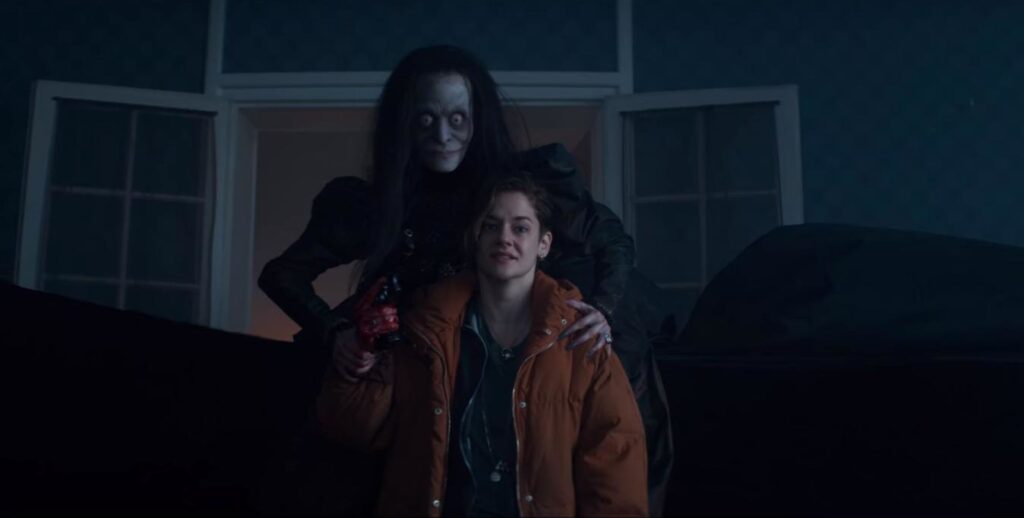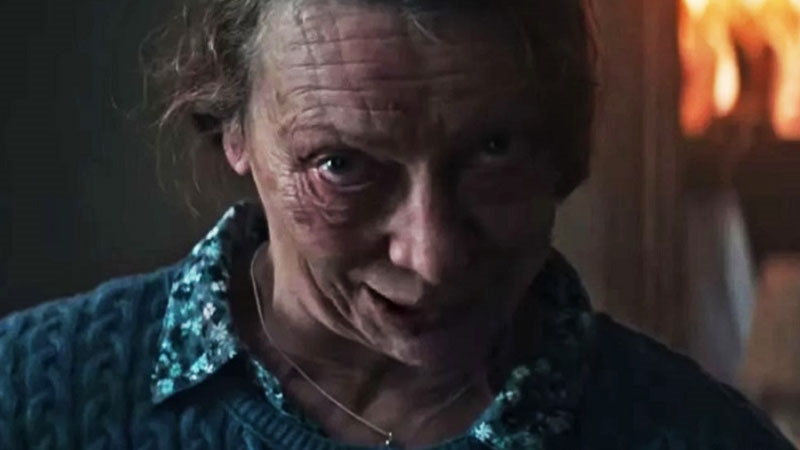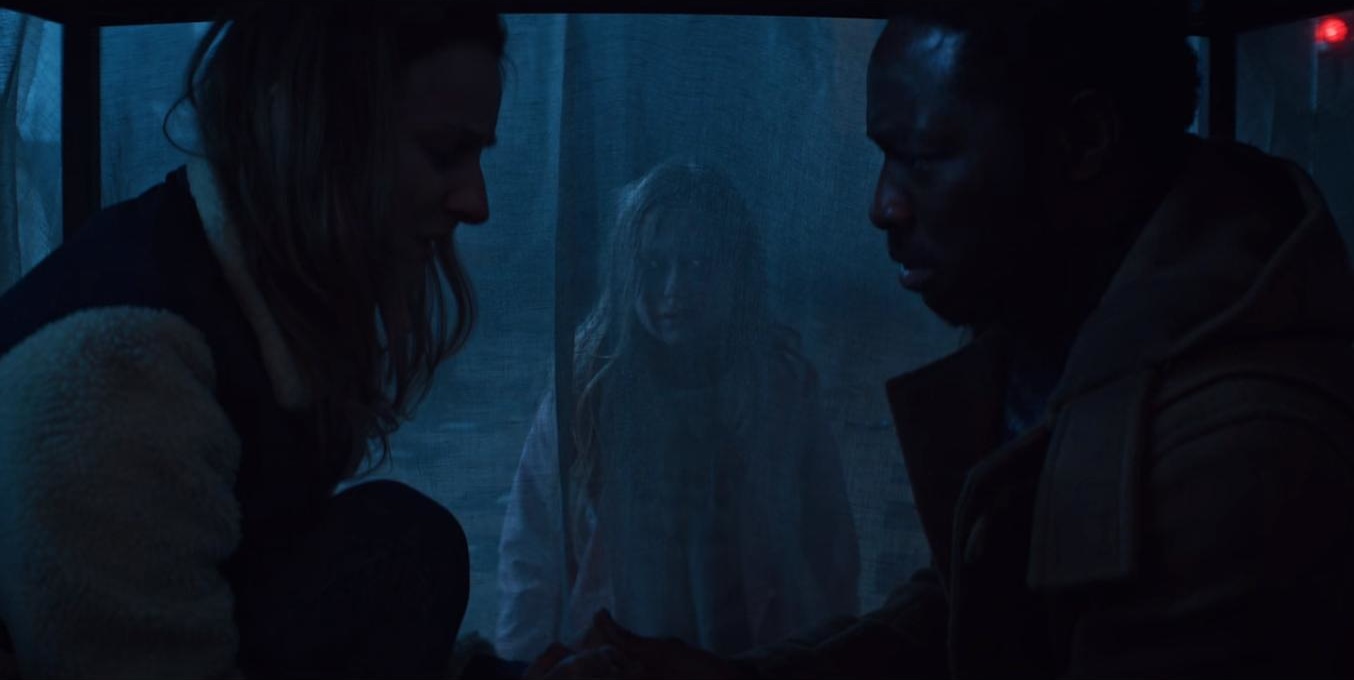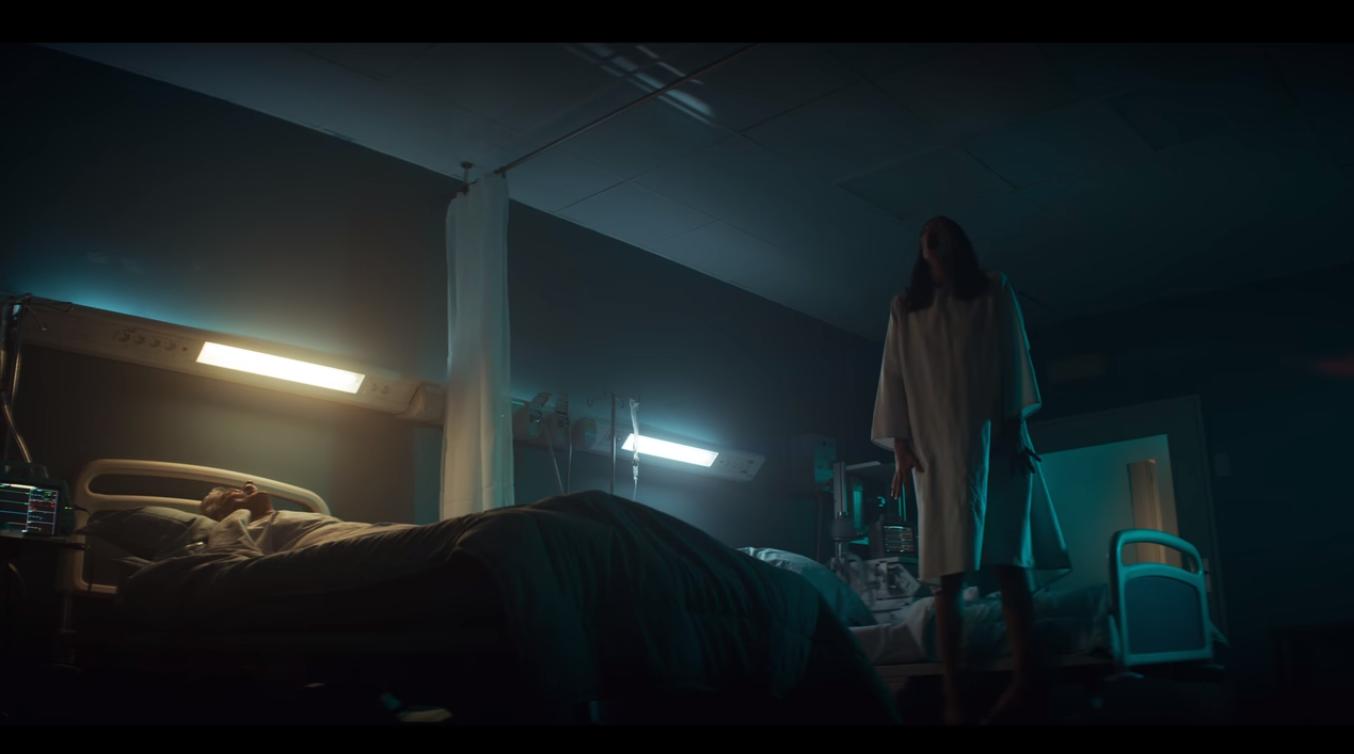
There’s something sick at the core of Marianne, and I’m not even talking about the witch. I mean the real sickness. The one that rots dreams and turns memory into poison. You feel it in the first five minutes of the show. The way everything feels off, even before the horror kicks in. That’s not bad lighting or weird pacing. That’s intentional. That’s trauma. And the more you watch, the more you start to realize, this isn’t a story about a witch haunting a woman. This is about a woman haunted by herself.
Let’s talk about Emma. Or more specifically, Emma’s mind. Because whatever’s happening to her in the show, you have to understand something first: she’s already broken. Before the horror starts, she’s unraveling. And Marianne isn’t really about external evil. It’s about what happens when internal rot becomes too loud to ignore. When it leaks out. When the monster you buried in your subconscious puts on your mother’s face and starts crawling up the stairs.
Emma: The Writer, The Liar, The Addict
Emma Larsimon is a bestselling horror novelist. She’s also a compulsive drinker, emotionally avoidant, a serial burner of bridges, and deeply, violently self loathing. That’s not subtext. It’s written all over her. From the opening scene, you’re not watching a heroine. You’re watching a runner. Someone who writes horror because it’s safer than feeling. Someone who turns her trauma into fiction just so she can survive it but barely.
And that’s the thing. Horror writers aren’t afraid of monsters. They know monsters. They’ve lived with them. They feed them words. They give them faces. And in Emma’s case, the monster has a name: Marianne.
Except Marianne isn’t an ordinary witch. She’s Emma’s childhood trauma, made flesh. She’s intrusive thought given form. She’s that thing that visits when your chest goes tight at 3AM and you remember your dad’s funeral or your mother’s scream or the thing you shouldn’t have done but did anyway. Marianne is the horror Emma created to cope with her past. And like every unprocessed trauma, she doesn’t stay on the page.
She leaks.

Marianne As the Embodiment of Dissociation
Here’s the wild part. Most horror shows play with external evil; demons, ghosts, vampires. Marianne is different. Emma creates the witch in her stories, but the witch starts appearing in the real world. Possessing people. Killing people. Destroying Emma’s life. Classic supernatural stuff, sure. But look at it another way.
Emma dissociates through her writing. That’s her main coping mechanism. She turns memories into stories so she doesn’t have to feel them. And then one day, the character she made to hold the pain won’t stay in the story. She comes back. She takes over people Emma loves. And when you look at that through a psychological lens, what you’re really seeing is this:
Repressed trauma doesn’t stay buried. It finds a body. Even if it has to use yours.
Marianne is a stand-in for every abusive adult in Emma’s past. She’s the mother figure twisted beyond recognition. She talks like your worst thoughts. She knows your guilt. She preys on shame. And the most terrifying thing she says isn’t a threat, it’s that she’s always been there. That Emma made her up as a child. Which means Emma’s been carrying this pain since before she had language for it.
The Return to Elden: Why We All Avoid Going Home
Let’s talk about Elden. The hometown. The site of the original trauma. The place Emma fled and never wanted to go back to. Because every horror story is a return story. Every monster is an echo from the past.
When Emma is forced to return to Elden, you know what this is. This is every adult who has to visit the childhood home they escaped. This is the dread of opening the attic. Of facing old friends who know what happened. Of seeing the house where it started. The entire show’s geography is trauma-mapped: the childhood home, the cursed lighthouse, the woods where they played as kids and found things they weren’t supposed to find.
And Emma isn’t just scared of the witch. She’s scared of who she was when she lived there. Of what she did. What she didn’t do. That’s what makes Marianne so brutal—it’s not about facing a monster. It’s about facing yourself, when you were still soft and scared and shaped like an open wound.

Guilt As a Parasite
One of the recurring motifs in Marianne is rot. People rotting from the inside out. Faces decaying. Smiles stretching too wide. It’s not some body horror. It’s symbolic. This is what guilt does. It eats. It starts in the stomach, then spreads to the heart, the skin, the dreams.
Emma has guilt so strong it becomes generative. She imagines a witch to punish her. A woman who punishes not just Emma, but everyone Emma’s ever loved. Because that’s what guilt does. It convinces you you’re toxic. That everyone you love will suffer for loving you. That you deserve to be punished. And Marianne? She’s just that voice, turned up loud.
The show plays with this constantly. Marianne doesn’t only kill but she infects. She worms her way into people’s minds. Which is exactly what intrusive thoughts do. Which is what unresolved trauma does. It doesn’t stay put. It spreads. Until it owns everything.
Writing As a Double Edged Sword
Here’s what wrecked me the most. Emma fights Marianne the only way she knows how: by writing.
But even writing betrays her.
Because writing is what created the monster in the first place.
This is what it’s like to be a trauma survivor and a creator. You need to create. It’s your lifeline. But it’s also the trap. Because every time you go back to the well to write the next story, you’re digging into the same wound. Again and again. Hoping this time it’ll bleed clean. It never does.
That’s the paradox. Writing saves Emma, but it also damns her. Her books are popular because they’re real. Because she bled into them. But now people expect the blood. And they want more. And suddenly, writing is no longer a way out. It’s a leash.
And maybe that’s what Marianne really is: the cost of turning your pain into entertainment.

So What Is Marianne, Really?
It’s the monster you made to survive your childhood and how it won’t let you grow up.
It’s addiction, and the way trauma loops until it becomes myth.
It’s how guilt can shape reality. How shame distorts memory. And how writing, the thing that’s supposed to save us, can sometimes just turn the knife deeper.
And yes. It’s about a witch. But only if you believe the witch was ever real.
Because the real horror in Marianne isn’t the supernatural. It’s the psychological. It’s the fact that Emma might be crazy. Or haunted. Or both. It’s the blurred line between horror as metaphor and horror as literal. And the truth that, either way, she loses.
We all have our Marianne. Some of us write her. Some of us dream her. Some of us drink to forget her. But if you’ve ever woken up with a tight chest and a name you never want to say out loud…
You already know what this show is really about.




